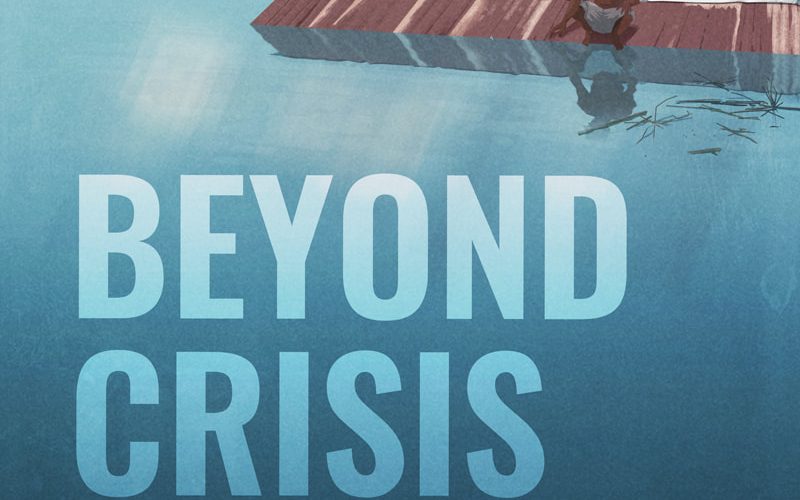THE OVERRIDING QUESTION in Kai Reimer-Watts’ Beyond Crisis is why is our response to climate change “absurdly slow”?
Humanity is already experiencing horrific forest fires and flooding – think Fort McMurray and Hurricane Sandy – yet many of us still engage in the flying, driving and beef-eating which bring wide-spread greenhouse gas emissions. Some of us elect governments that don’t take global warming seriously. Psychologist Margaret Klein Salamon, one of the film’s interviewees, wonders why we continue to live pretty much as usual (even prepare for retirement) despite the rising crisis.
True, there’s now an international climate movement – and it’s made important gains. It includes among its supporters celebrities like Leonardo DiCaprio and Al Gore, and revered scientists such as James Hansen. The 2014 People’s Climate March – whose optimism the film celebrates – brought an astounding 400,000 participants to New York.
When I said coal threatens climate, journalists’ eyes glazed over. When I said the black rock exacerbates asthma, they immediately understood.
Yet this activism hasn’t proven wholly successful. It hasn’t sparked the massive, worldwide citizen engagement necessary to reduce GHGs dramatically. Why is that?
Beyond Crisis suggests the movement needs to improve its strategies and tactics. For one, it has to tell a better story. It needs a language that has purchase for folks in their daily lives. The film shows activists doing street theatre in New York’s South Bronx. They remind us that fossil fuels harm local children’s respiratory health. Concerns about the latter (more than worries about climate) mobilize this struggling community. I found this framing useful in my own work to close Alberta’s coal plants. When I said coal threatens climate, journalists’ eyes glazed over. When I said the black rock exacerbates asthma, they immediately understood – and often replied that their own kids had the disease.
Dr. Peter Carter, an expert reviewer for the Intergovernmental Panel on Climate Change, tells viewers that the movement needs to have three succinct demands: divestment, polluter pays, and no fossil fuel subsidies.
Naomi Klein argues the movement needs to speak more about justice. The rise of renewables is essential but many in the oil and gas sector will find the change wrenching; they mustn’t be abandoned. Over time the transition will be beneficial for the labour market – as Klein points out, there’s far more employment in renewables than in dirty fuels – but in the short-term some people will be out of work. Activists should make common cause with these folks and insist that government help them find fulfilling, well-paying jobs elsewhere.
Salamon says the movement needs to “go big”. It can’t be composed merely of traditional environmentalists. It has succeeded in bringing together faith groups, labour, First Nations, youth and scientists, but needs to be more encompassing still. Venture capitalist Tom Rand suggests there’s even a role for large corporations – as major wind and solar investors.
I think these strategies are useful but, to grow, I also think the movement needs to attend to its members’ inner life. It’s not just a matter of improving the message box, correctly framing our demands or reaching out to new constituencies. We need to create a movement people love being part of, a movement their friends are in. We need to offer folks a community – one that’s fun and uplifting and adds meaning to their lives. If people attend rallies and find themselves bored or lonely, they won’t come back.
Amanda Lewis, an editor at a major publishing house, tells viewers that, if we’re to engage citizens on climate, we need to show more creativity and “a certain amount of play”. Those are good overarching suggestions.
As we build our movement, we need to try many different approaches – everything from arts-based activism to building bridges with big business. We need to be open to making mistakes. And, in the face of crisis, we have to offer our members a measure of lightness and joy.
You can arrange to host a Beyond Crisis screening at beyondcrisisfilm.com/screenings.
Reviewer Information
Gideon Forman is a long time peace and environmental activist.













